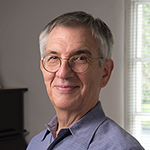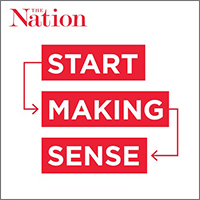 Fans have been puzzled and troubled by Bob Dylan’s new Christmas album. To help figure out what Dylan is doing, we turned to Sean Wilentz — he’s the official historian at the official website BobDylan.com, and he also teaches American history at Princeton. He’s written many books, including “The Age of Reagan.”
Fans have been puzzled and troubled by Bob Dylan’s new Christmas album. To help figure out what Dylan is doing, we turned to Sean Wilentz — he’s the official historian at the official website BobDylan.com, and he also teaches American history at Princeton. He’s written many books, including “The Age of Reagan.”
Q. “Christmas in the Heart” opens with “Here Comes Santa Claus,” a Gene Autry song which, I have to say, is one of the most annoying holiday songs ever written, even before Bob Dylan sang it. “Hang your stockings, say your prayers” — is this a joke?
A. It’s not a joke at all. This is Bob Dylan looking back to his own childhood. He sings the songs that he heard as a kid in Hibbing. He’s recalling that time and those songs and that spirit.
The way Dylan sings “I’ll Be Home for Christmas,” it sounds like a threat, a reason to lock your doors. . . .
. . . continued at TheNation.com.

 Plus: LIES — AND TRUTH – ABOUT 9/11:
Plus: LIES — AND TRUTH – ABOUT 9/11:  The first time
The first time 
 Plus: KPFK Sports! Soviet sports, that is:
Plus: KPFK Sports! Soviet sports, that is:  When Barack Obama gave his victory speech on election night last November, he picked Chicago’s Grant Park – the legendary site of the battle between anti-war demonstrators and Chicago cops during the Democratic National Convention in Chicago in 1968. According to campaign manager David Axelrod, Obama chose Grant Park to “symbolically overcome the damage done to American idealism forty years before.”
When Barack Obama gave his victory speech on election night last November, he picked Chicago’s Grant Park – the legendary site of the battle between anti-war demonstrators and Chicago cops during the Democratic National Convention in Chicago in 1968. According to campaign manager David Axelrod, Obama chose Grant Park to “symbolically overcome the damage done to American idealism forty years before.” Also:
Also: 
 Plus:
Plus:  “Water found on the moon,” the headlines said – water that “could be used for drinking,” the LA Times reported, possibly enough for “future astronauts to live off the land.” . . .
“Water found on the moon,” the headlines said – water that “could be used for drinking,” the LA Times reported, possibly enough for “future astronauts to live off the land.” . . .
 The wildly popular “TIJUANA SOUND” of the 1960s, marketed by Herb Alpert, caricatured Tijuana as a sleepy Mexican border town. The real Tijuana, however, was an emerging industrial city with its own versions of the blues, rock & roll and jazz.
The wildly popular “TIJUANA SOUND” of the 1960s, marketed by Herb Alpert, caricatured Tijuana as a sleepy Mexican border town. The real Tijuana, however, was an emerging industrial city with its own versions of the blues, rock & roll and jazz.  Also: DOROTHEA LANGE photographed “Migrant Mother,” the icon of the Great Depression–an eloquent portrait of a survivor. Lange went on to photograph Japanese Americans during their internment in WWII; those photos were banned.
Also: DOROTHEA LANGE photographed “Migrant Mother,” the icon of the Great Depression–an eloquent portrait of a survivor. Lange went on to photograph Japanese Americans during their internment in WWII; those photos were banned.
